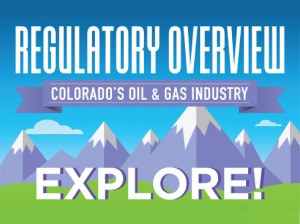From an Article by Judith Kohler, Denver Post, November 24, 2020
After delays caused by the pandemic and a nearly full change in members, the Colorado Oil and Gas Conservation Commission on Monday unanimously approved a broad swath of new rules seen as some of the strictest in the country.
The new rules include what’s considered the strongest statewide well setback requirement: 2,000 feet between new wells and schools and homes. Colorado will join Alaska as the only other state to ban routine venting and flaring of natural gas from oil and gas wells and other equipment.
The regulations, which will take effect Jan. 15, give more members of the public the right to challenge oil and gas operations they believe will harm them. They provide new protections for important wildlife habitat.
The COGCC, which changed from a volunteer to full-time commission during the summer, has a handful of regulations left to consider, including the size of bonds companies should provide to ensure that well sites are cleaned up.
What COGCC Chairman Jeff Robbins called “historic rule-making” was mandated by Senate Bill 181, a 2019 law that shifted the commission’s role from fostering oil and gas development to regulating it in a way that protects the public health, safety and the environment.
Approval of the legislation followed years of lawsuits, unsuccessful moves by cities to ban or restrict drilling and a failed ballot proposal to keep new wells at least 2,500 feet from homes, schools, waterways and other areas.
Although the 90-plus interest groups that participated in developing the regulations reached common ground in many cases, disagreements remain and debates are certain as the changes are rolled out and the rules are enforced.
After the commission voted, Robbins said he knows a lot of people aren’t happy with some aspects of the rules. “They want to claim that this rulemaking will surely shutter the industry or claim that this rule-making failed to implement Senate Bill 181. I completely disagree,” Robbins said.
The Colorado Oil and Gas Association said in a statement after the vote that while it agreed with many of the changes, there were several points of contention, a major one being what the group called the “unprecedented” 2,000-foot setback. Dan Haley, COGA CEO and president, said the evidence showed that the former 500-foot setback “was protective of public health, safety, and the environment.”
The industry has complained that the bigger setbacks will drive up costs and make certain oil and gas deposits inaccessible. A recent report by the Colorado School of Mines and the University of Colorado-Boulder said 2,000-foot setbacks would likely result in annual losses of about $2.5 billion based on the oil and gas that couldn’t be accessed.
Joe Salazar, executive director of Colorado Rising, said the setback and other rules, including one requiring that companies assess the cumulative impacts of development, were among wins for communities and homeowners. But Salazar, whose group was behind a failed 2018 ballot proposal to require 2,500-foot setbacks, doesn’t like provisions allowing shorter setbacks and other exceptions under certain conditions.
”I think the oil and gas industry was able to place some loopholes in some of these rules,” Salazar said. “What it’s going to end up being is us fighting it out in front of the COGCC as well as in court to have some of these things interpreted according to Senate Bill 181.”
However, Salazar praised a new rule that clearly places the burden of proof on the company when a drilling plan is challenged. He said the COGCC responded to the public’s concerns that the previous rule was unclear. “The commissioners were very deliberate, very conscientious,” Salazar said. “I’m sure it’s not easy being yelled at by everyone.”
#####. #####. #####. #####. #####. #####.
See also: Bill heading to Penna. governor would relax environmental laws for conventional drillers, Rachel McDevitt, StateImpact Pennsylvania, November 20, 2020
The bill to relax laws governing conventional oil and gas drillers in Penna. is heading to the governor’s desk. Lawmakers passed the legislation, after it sat in the Senate for months. (Gov. Wolf has now vetoed this bill as posing too much environmental risk.)


{ 2 comments… read them below or add one }
Wow. Here I thought Colorado was only 1500 miles away, and Pennsylvania bordered WV. But apparently they’re actually on another planet. Can you imagine such laws–or vetoes–in WV?
COGCC Mission Change — Rulemaking Update – 350 Colorado, 11/23/20
On Nov. 23, 2020, the COGCC (Colorado Oil and Gas Conservation Commission) voted on many updated rules and regulations as part of their “Mission Change” rulemaking to fulfill SB 19-181 that required them to regulate the oil and gas industry in a manner that protects public health, safety, welfare, the environment and wildlife resources.
The updated rules are certainly an improvement on past rules (see the COGCC press release pasted at the bottom of this blog), but ultimately much more needs to be done to truly protect Coloradans’ health, air, land, water and climate.
We will need to stay vigilant to keep demanding the changes that are needed and hold our leaders and regulators accountable!
THERE is a link to our most recent 1-click letter outlining several of the still outstanding issues in the updated rules, which are outlined below:
https://world.350.org/colorado/cogcc-mission-change-rulemaking-update/